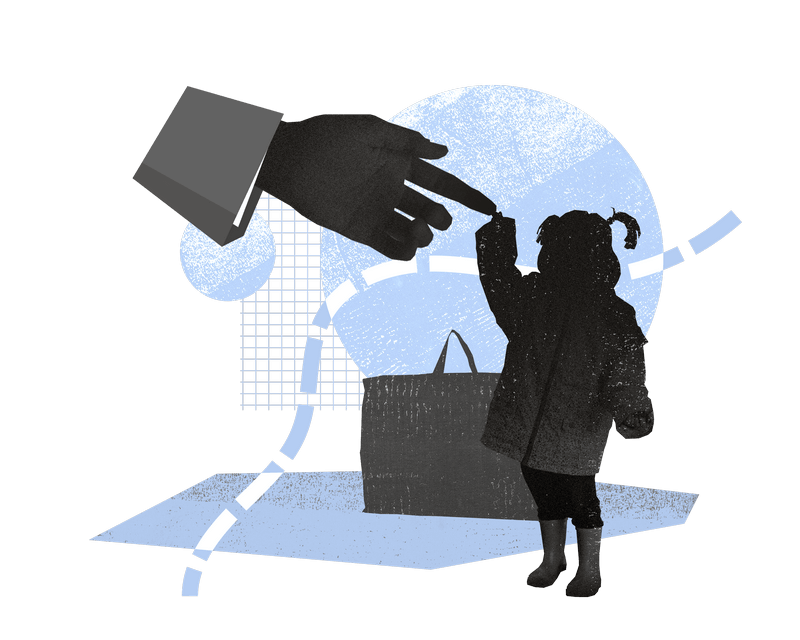Return of Unaccompanied Children

Migrant children can end up “unaccompanied” in a foreign country for a variety of reasons, including the illness, death, imprisonment, or expulsion of their parents. Children in this situation are returned by staff members from reception centers or social transit institutions.
Wrong approach
Children who are handed over by law enforcement officers in a neutral zone, i.e. at a border crossing, suffer the greatest amount of stress. These children are brought to the border by the staff members of Ministry of Internal Affairs institutions of one country and then picked up by Ministry of Internal Affairs staff in their country of origin. These staff members then take the children to a closed police reception center. The situation is also traumatic, but to a lesser degree, for children who are accompanied by staff members of reception centers or transit institutions to a transit institution or an official’s office to be picked up by relatives or representatives of the children’s home where the child is going to live.
Child Rights approach
After prompt, direct communication between social services organizations of the two countries, children should be transferred from social workers to social workers from the institutions where psychological and rehabilitation services have been arranged for the children. If a child is being returned to a family, then reunion with the family should take place under the supervision of a social services organization to avoid the child’s exploitation or other negative occurrences. The receiving party should be notified of the child’s arrival in advance and should create the conditions required for the child’s further study, rehabilitation, and integration.
Cases
Russia. A 14-year-old girl from Moldova who had been subjected to violence and sexual exploitation was found during a raid on the den of “a mafia of beggars” that exploited disabled people by pretending to be veterans of military conflicts. Nothing was known of the girl’s family. She was taken to a transit institution and attempts were made to send her back to Moldova. However, the Ministry of Internal Affairs reception center listed in the Chisinau Agreement no longer exists in Moldova, meaning that the child’s return required other international treaties and practices. The girl has been held for an extended time in a closed Russian transit institution that does not provide for rehabilitation or a school education. If she returns home, she faces the real risk that she will end up with the very same relatives who sold her into slavery.
ADC «Memorial» commentary:
In this case, immediate measures must be taken for this girl’s psychological rehabilitation, and she must be helped to overcome the trauma caused by being exposed to violence and exploitation for an extended period. Before she is returned to her country of origin, officials must study her family’s situation and assess the degree to which her relatives are responsible for her ending up in slavery.